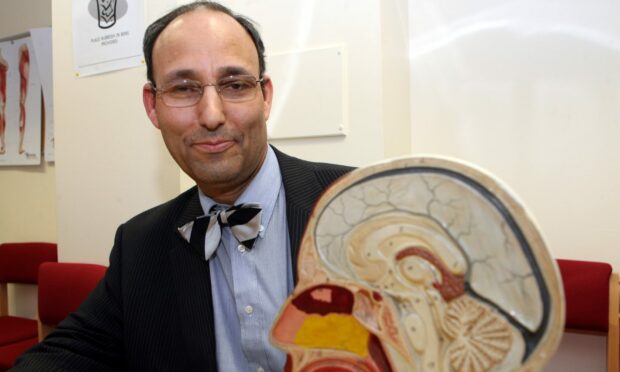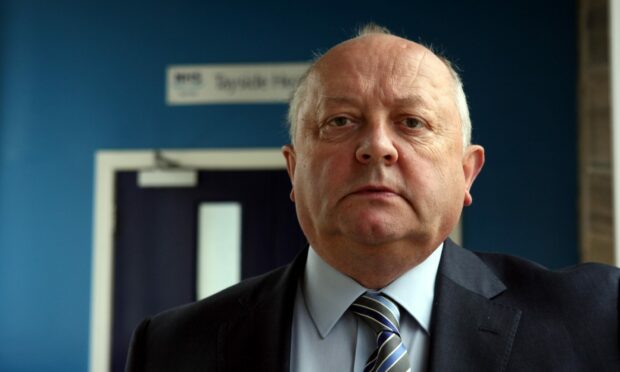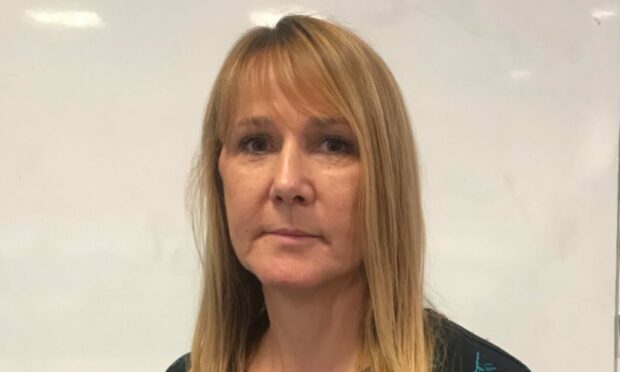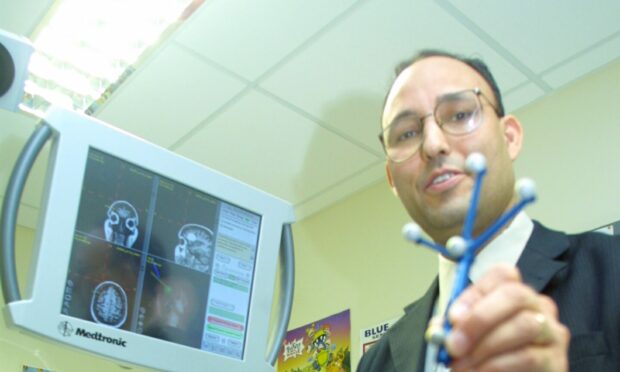A shocking new report has exposed huge failings from NHS Tayside bosses in their handling of disgraced surgeon Sam Eljamel.
The “due diligence” review, carried out by the health board, shows more should have been done to protect patients who suffered at his hands.
For Eljamel’s victims, the latest revelations bolster their demands for a public inquiry into the escalating crisis.
Here are the key findings which emerged from the scathing report.
1 – First record of Eljamel complaint in 2011
NHS Tayside now say its first record of a patient complaint about the rogue doctor is from 2011 – a significant change in the health board’s timeline of events.
Until Thursday’s review the organisation insisted 2013 – when he was put under light-touch supervision and later suspended – was when concerns emerged despite whistleblowers claiming the alarm was raised as early as 2009.
In a previous statement, the health board said: “Reviews to date, including external reviews of Professor Eljamel, have not raised concerns relating to Professor Eljamel’s practice before 2013.”
The report states three patients made complaints in 2011, followed by another three raising concerns in 2012.
Eight patients then came forward to signal alarm bells in 2013, the year his career in Dundee came to an end.
That same year, a member of staff raised concerns about Eljamel during his stint under supervision.
But the report prompts further questions around employee worries, given it also says no formal complaints were raised between 1995 and 2023.
The findings have prompted further anger from victims.
2 – Missing data
The report admits key records surrounding the conduct of Eljamel – who was hired by NHS Tayside in 1995 – may have been destroyed.
Historic complaints were destroyed by the health board seven years after they had been addressed or resolved, while new IT systems have been put in place.
As a result, the review admits there is “limited data” and a “lack of information” about Eljamel prior to these IT changes.
Further uncertainty emerges from revelations those at the top of NHS Tayside have “limited knowledge” of past events since they were not in post at the time.
3 – Senior leader decision-making fiasco
One criticism details how supervision of Mr Eljamel was entirely inadequate due to a lack of input from NHS Tayside bosses.
And the findings intensify the scrutiny on the reign of former health board chief executive Gerry Marr, at the helm from 2011 until his retirement in 2013.
The report states how Eljamel was never directly monitored in the operating theatre despite the health board being aware of concerns about his work and behaviour.
This finding comes just weeks after a story in The Courier cast doubt on how robust his supervision was.
A review of his work was triggered by a complaint in December 2012.
But in June 2013, clinical director Philip McLoughlin and consultant neurosurgeon David Mowle appeared to blame junior doctors for Eljamel’s poor performance.
Just weeks later, further complaints saw them change course as Mr Mowle was tasked with light-touch supervision.
However, this consisted of little more than the senior medic joining Eljamel on ward rounds and discussing cases with him.
An interim letter in October from the Royal College of Surgeons, ahead of their full report into the doctor’s behaviour, raised concerns about his honesty.
However, the review released today states NHS Tayside took no steps to escalate Eljamel’s supervision despite this.
Indeed, there is no evidence those responsible even contemplated beefing up their light-touch approach to monitoring the bungling surgeon.
As a result, the “due diligence” review concludes Eljamel was “inadequately monitored” during a period in which he operated on 111 patients.
Among them is Jules Rose, a leading campaigner who had her tear gland removed instead of a tumour during a botched operation.
The health board concluded: “The decision to supervise Mr Eljamel was the right decision to take, however the arrangements for this supervision and the indirect nature of it were not adequate to ensure consistent, good quality clinical care.
“The indirect nature of the supervision was inadequate when there was a known concern over some aspects of his clinical practice.”
4 – Failure to act on recommendations
NHS Tayside bosses have always insisted they take the concerns of Eljamel’s victims seriously and say action was taken to prevent a repeat of the scandal.
But the review uncovers there is little evidence the health board acted on key recommendations from a number of reviews.
The 2013 report from the Royal College of Surgeons highlighted Eljamel’s failings and came out with 18 key areas of improvement for NHS Tayside to act on.
But this latest deep-dive states there is “no documentation” to demonstrate how the health board has implemented these key findings.
Similarly, an external review from a senior staff member at NHS Lothian in 2019 came up with recommendations for Tayside bosses.
The health board came up with an action plan to set up what improvements would be made but there is no evidence this was ever followed up.
5 – Legal cases
The new report reveals a total of 20 legal cases have been launched against NHS Tayside due to harm caused by Eljamel.
Of these, 12 claims against the health board have settled, while two remain ongoing.
In total, NHS Tayside has 98 complaints against Eljamel on record, 84 of which were received after his suspension.
In 2021, he was ordered to pay one victim £2.8 million in compensation after his botched operation left her with life-changing disabilities.
The Libyan – whose lies about his credentials revealed in The Courier prompted a recruitment process probe as part of the latest review – is believed to be working in a hospital in his homeland after selling his house in Newport-on-Tay, Fife, in 2018.






Conversation